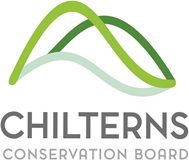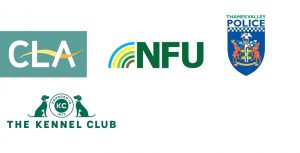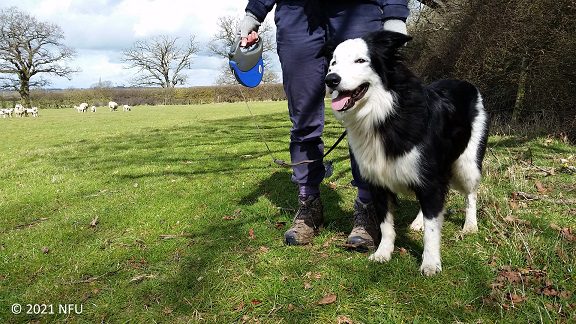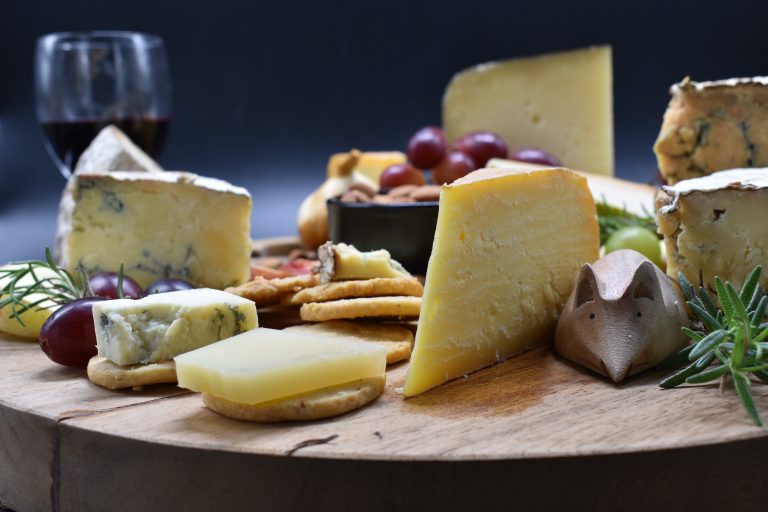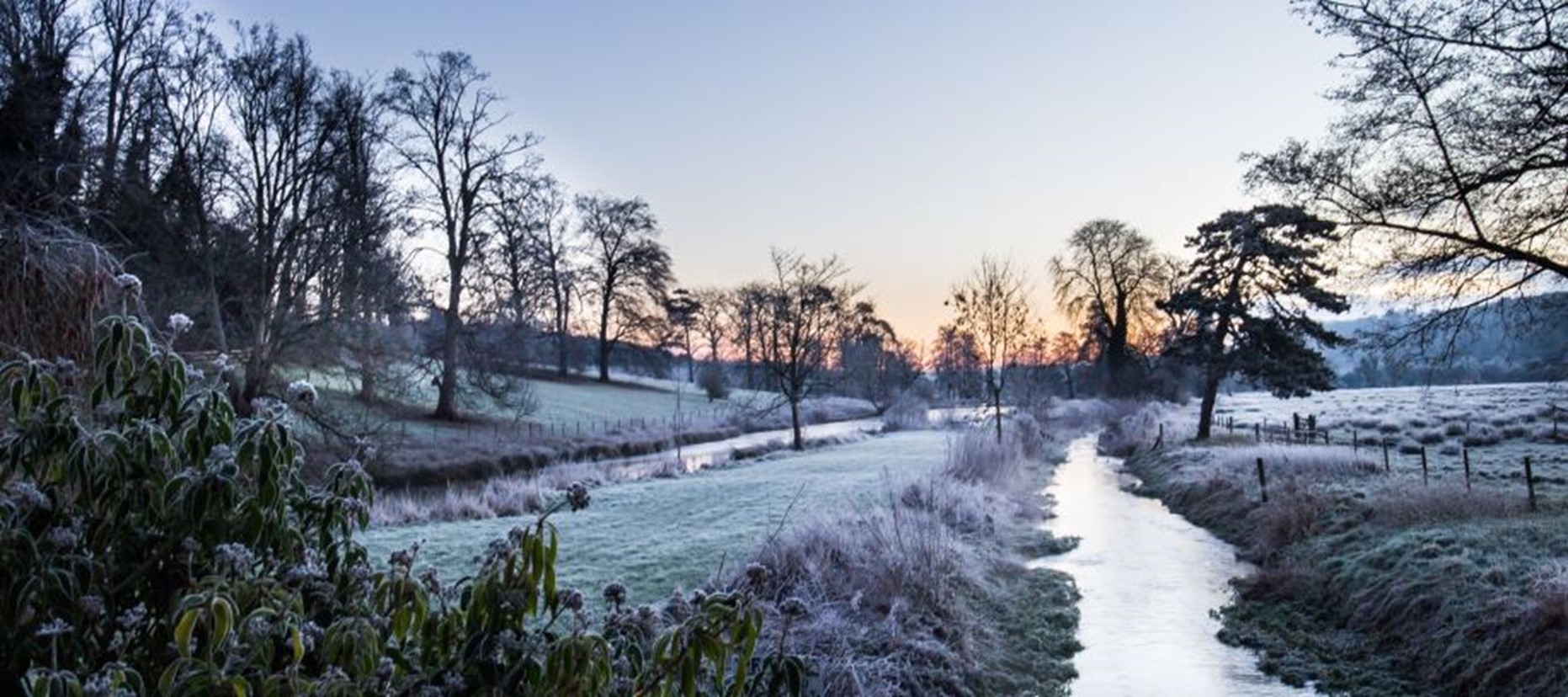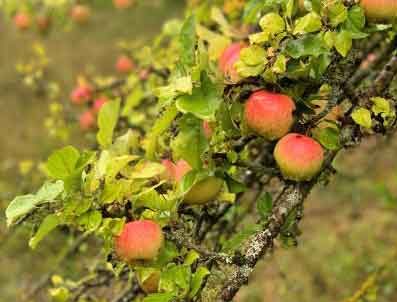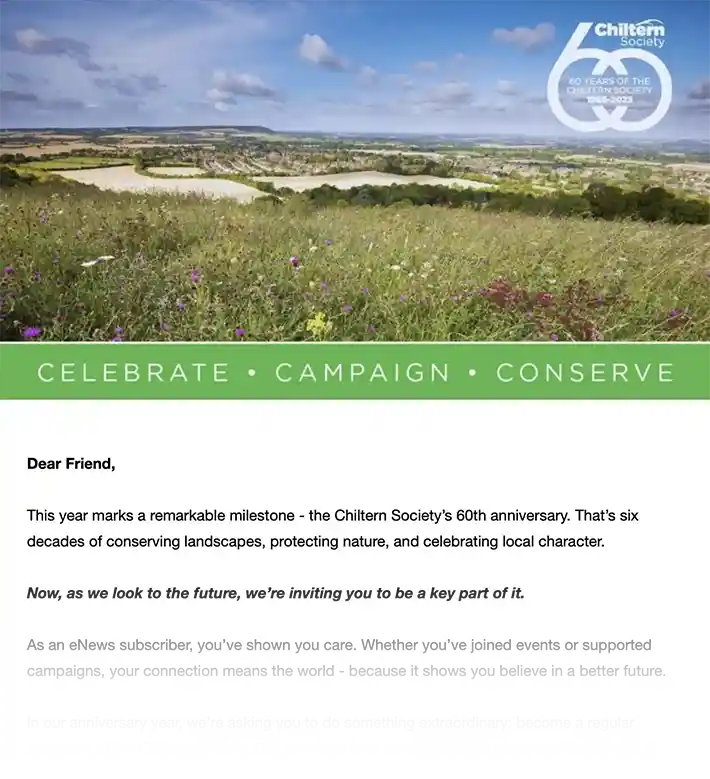Tom Beeston, our Chief Officer, said “We’re delighted more people than ever are enjoying the Chilterns, but concerned regarding the impact this increased traffic is having for farmers and wildlife. It’s great to see the Chiltern Conservation Board is helping bring all parties together and highlighting the importance of following the Countryside Code.”
Keep dogs on leads around livestock and under control at all times, urge conservationists and farmers
- With the lambing season underway, conservation groups, farmers and The Kennel Club are reminding dog owners to keep dogs under control at all times, and to always keep them on a lead around livestock.
- And as birds begin to nest and rear young, walkers and countryside users can help protect ground nesting birds and other wildlife by keeping to footpaths and bridleways.
At this time of year, there are signs of Spring in the air, with birds starting to nest, the first few butterflies on the wing and lambs being born. The Chilterns Area of Outstanding Beauty (AONB) is a nationally protected landscape, but also a living, working landscape where livestock grazing in the fields are a regular sight at this time of year.
We are fortunate to have over 2,000 km of footpaths in the Chilterns AONB and, inevitably, many of them pass through fields of sheep or cows. This is a timeless rural scene, but, sadly, one which has seen a sharp increase in incidents of livestock being wounded, or even killed, by dogs which have been let off leads. This is devastating for all involved.
NFU adviser Georgia Craig says: “Most dog attacks on livestock are completely preventable. Please #takethelead and keep your dog on short lead around sheep, particularly now, with ewes about to give birth and so many newborn lambs around. If chased by dogs, pregnant ewes (female sheep) can commonly lose their lambs or die from stress and exhaustion. Most dog owners behave responsibly, but sadly a minority allow their pets to run freely in fields where farm animals may be grazing. Young livestock are particularly vulnerable, so take extra care and avoid an animal welfare tragedy.”
Dog ownership has increased hugely during lockdown, with limited opportunities to socialise and train new puppies. Tim Bamford from the CLA says: “With dog ownership becoming more popular, livestock worrying by dogs not adequately controlled by their owners is on the increase, and it’s so important owners take responsibility to keep their dog under control, especially having a dog on a lead around livestock”.
Dr Ed Hayes, Head of Public Affairs at The Kennel Club commented: “We know dog ownership has huge physical and mental health benefits for the whole family. To make sure that everyone can continue enjoying the countryside safely, we encourage all dog owners to follow the Countryside Code to ensure they are respecting local communities and protecting the natural environment. With Spring upon us and the peak lambing season fast approaching, it is also crucial that owners understand their responsibilities and exercise appropriate caution when accessing rural areas, particularly if livestock is present and their dog isn’t used to walking in the countryside. This means keeping dogs under close control and within sight whilst walking in the countryside, and on leads around livestock. And remember to release the lead if you chased by cattle”.
Nature Reserves are also being affected. Mick Venters, Natural England’s Senior Reserves Manager in the Chilterns says: “Keeping to footpaths reduces disturbance to the birds and their fragile nests which are on the ground, tucked away safely in long grass. Keeping dogs on leads stops an exuberant or inquisitive pooch accidentally scaring adult birds off nests or trampling eggs. Vulnerable chicks can quickly perish if they are left alone by the parent birds for too long.”
The Chilterns Conservation Board’s Chief Executive, Dr Elaine King, said “It’s great that more people are getting out and enjoying the nature and the beauty of the Chilterns during lockdown. However, we urge people to follow the Countryside Code, to ensure that people, farm animals and wildlife can all stay safe”.
